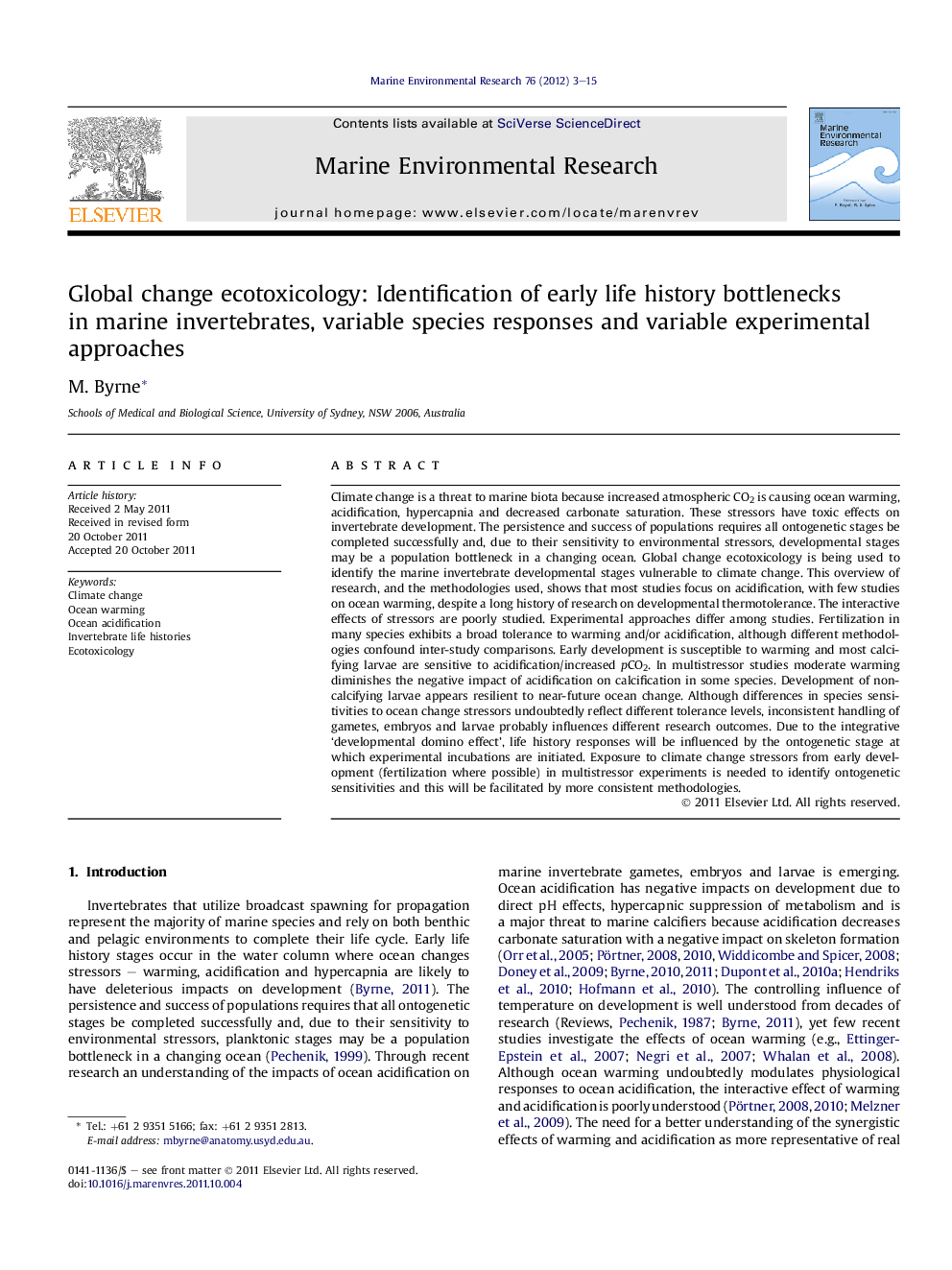| کد مقاله | کد نشریه | سال انتشار | مقاله انگلیسی | نسخه تمام متن |
|---|---|---|---|---|
| 4551005 | 1627605 | 2012 | 13 صفحه PDF | دانلود رایگان |

Climate change is a threat to marine biota because increased atmospheric CO2 is causing ocean warming, acidification, hypercapnia and decreased carbonate saturation. These stressors have toxic effects on invertebrate development. The persistence and success of populations requires all ontogenetic stages be completed successfully and, due to their sensitivity to environmental stressors, developmental stages may be a population bottleneck in a changing ocean. Global change ecotoxicology is being used to identify the marine invertebrate developmental stages vulnerable to climate change. This overview of research, and the methodologies used, shows that most studies focus on acidification, with few studies on ocean warming, despite a long history of research on developmental thermotolerance. The interactive effects of stressors are poorly studied. Experimental approaches differ among studies. Fertilization in many species exhibits a broad tolerance to warming and/or acidification, although different methodologies confound inter-study comparisons. Early development is susceptible to warming and most calcifying larvae are sensitive to acidification/increased pCO2. In multistressor studies moderate warming diminishes the negative impact of acidification on calcification in some species. Development of non-calcifying larvae appears resilient to near-future ocean change. Although differences in species sensitivities to ocean change stressors undoubtedly reflect different tolerance levels, inconsistent handling of gametes, embryos and larvae probably influences different research outcomes. Due to the integrative ‘developmental domino effect’, life history responses will be influenced by the ontogenetic stage at which experimental incubations are initiated. Exposure to climate change stressors from early development (fertilization where possible) in multistressor experiments is needed to identify ontogenetic sensitivities and this will be facilitated by more consistent methodologies.
► Climate change studies of marine invertebrates use variable methodologies.
► Fertilization in many marine invertebrates is robust to ocean change stressors.
► Early embryos appear most susceptible to warming.
► Calcifying larvae are susceptible to acidification.
► Variable species responses may be influenced by different methodologies.
Journal: Marine Environmental Research - Volume 76, May 2012, Pages 3–15